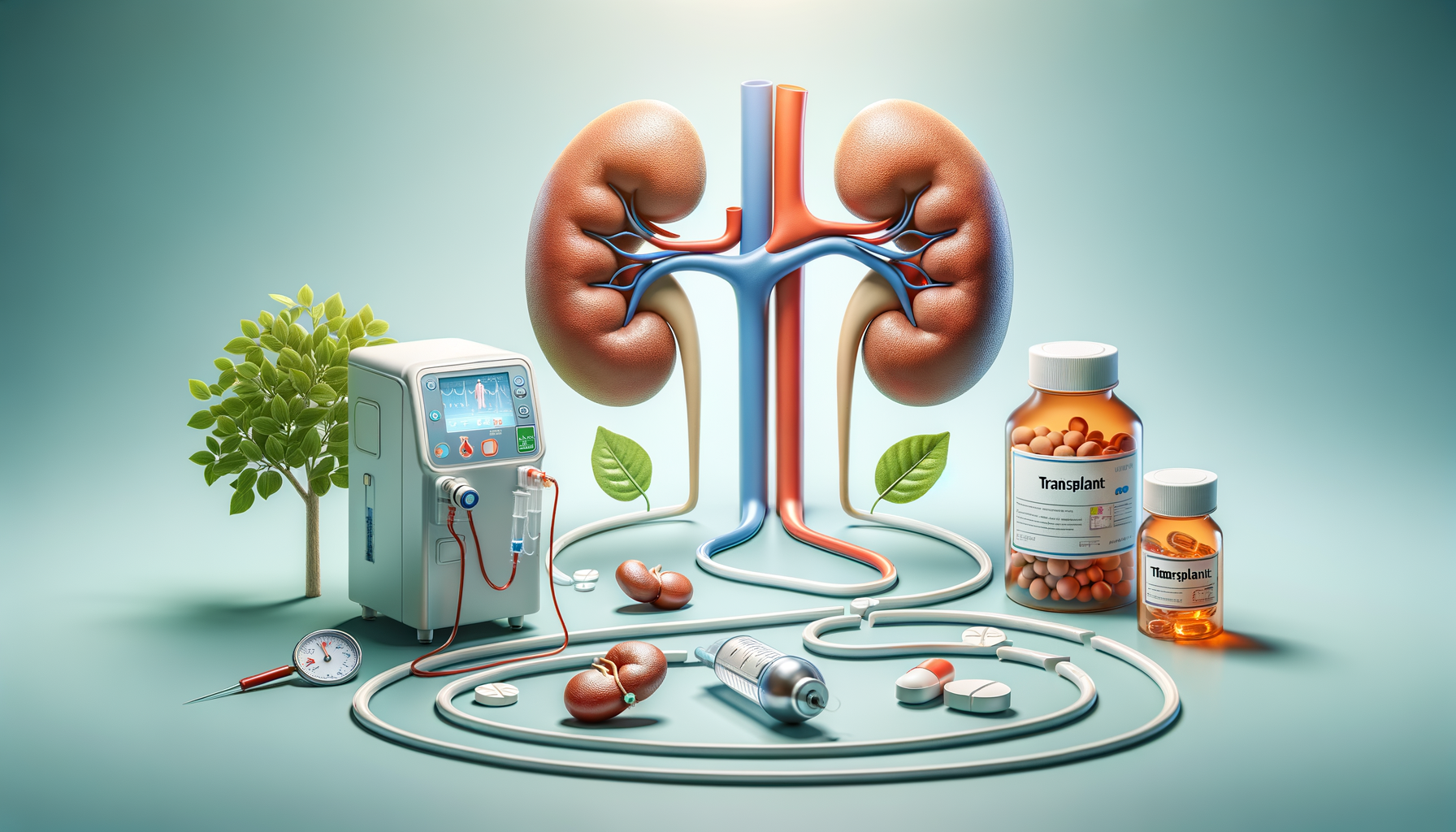
Understanding Kidney Disease Treatment Options: A Comprehensive Guide
Introduction to Kidney Disease
Kidney disease is a significant health issue affecting millions worldwide. The kidneys play a vital role in filtering waste and excess fluids from the blood, balancing electrolytes, and regulating blood pressure. When these functions are impaired, it can lead to a range of health complications. Understanding the treatment options available is essential for managing the condition effectively and improving quality of life.
Conventional Treatment Methods
Conventional treatments for kidney disease primarily focus on managing symptoms and slowing the progression of the disease. These include:
- Medications: Prescribed to control blood pressure, manage diabetes, and reduce cholesterol levels.
- Dietary Changes: Patients are often advised to follow a kidney-friendly diet low in sodium, potassium, and phosphorus.
- Dialysis: A procedure that artificially removes waste and excess fluid from the blood when the kidneys are no longer able to perform this function.
- Kidney Transplant: In cases of end-stage renal disease, a kidney transplant may be considered. This involves replacing the damaged kidney with a healthy one from a donor.
These treatments are tailored to individual needs and are crucial in maintaining kidney function and overall health.
Alternative and Complementary Therapies
In addition to conventional treatments, some patients explore alternative therapies to complement their treatment plans. These may include:
- Herbal Supplements: Some herbs are believed to support kidney health, though their efficacy varies, and they should be used with caution.
- Acupuncture: This traditional Chinese practice is sometimes used to relieve symptoms associated with kidney disease.
- Yoga and Meditation: These practices can help reduce stress, which may benefit overall health and well-being.
While these therapies can be beneficial, it’s essential to consult healthcare professionals before incorporating them into a treatment regimen.
Lifestyle Modifications for Kidney Health
Adopting a healthy lifestyle is a cornerstone of managing kidney disease. Key lifestyle modifications include:
- Regular Exercise: Engaging in physical activity helps maintain a healthy weight and supports cardiovascular health.
- Smoking Cessation: Quitting smoking can significantly reduce the risk of kidney disease progression.
- Hydration: Drinking adequate water helps the kidneys function efficiently, though fluid intake should be monitored based on individual needs.
These changes can have a profound impact on overall health and are often recommended alongside medical treatments.
Monitoring and Regular Check-Ups
Regular monitoring and medical check-ups are vital for individuals with kidney disease. This involves:
- Blood Tests: To assess kidney function and monitor levels of waste products and electrolytes.
- Blood Pressure Monitoring: High blood pressure can exacerbate kidney disease, so regular monitoring is essential.
- Urine Tests: To detect abnormal levels of protein or blood, which may indicate kidney damage.
These assessments help healthcare providers adjust treatment plans as needed and ensure optimal management of the disease.
Conclusion: Empowering Patients with Knowledge
Understanding the various treatment options for kidney disease empowers patients to take an active role in their healthcare journey. By combining medical treatments with lifestyle changes and regular monitoring, individuals can manage their condition effectively and maintain a good quality of life. It’s important for patients to work closely with their healthcare providers to tailor a treatment plan that suits their specific needs and circumstances.